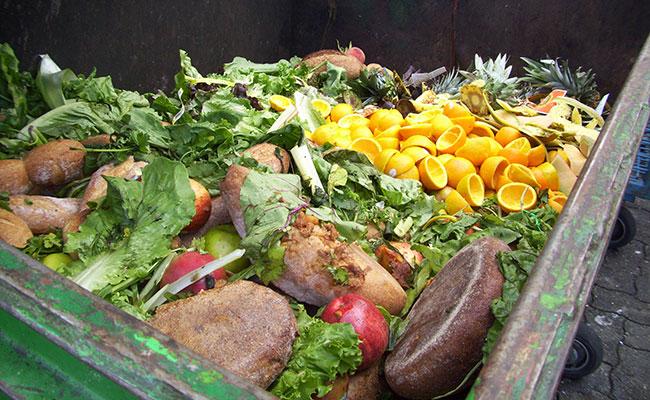Helping Reduce Food Waste in Canada
Using science and innovation to examine proven actions and technologies to decrease food waste and greenhouse gas emissions

Tetra Tech’s evaluation of the potential of food waste reduction strategies in Canada was highlighted in Recycling Product News in June 2017. For a National Zero Waste Council-commissioned study, Tetra Tech and Boston Consulting identified that adopting proven actions and technologies could reduce approximately four million tonnes of greenhouse gases (GHG) generated in Canada annually. Tetra Tech’s team is Leading with Science to examine prevention and sustainable management practices for addressing the vast amount of food waste.
The study reviewed the amount of waste generated by Canadians and calculated the estimated proportional food wasted given the related environmental, social, and economic impacts. Of the food produced for human consumption, approximately one third is wasted, and Canadians’ food waste costs an estimated $31 billion annually (Value Chain Management International, 2014).
The study outlined a range of initiatives that would help cut food waste in Canada produced from the food supply chain, the largest proportion of which is disposed in high-GHG-concentrated landfills. Our team helped develop a methodology to evaluate the total GHG emissions in Canada by analyzing a diverse sample of published data from rural and urban municipalities and regions across Canada, as well as similar data sources from the United States. The proposed food waste material weight was categorized according to management practices—prevention, diversion, or managed and unmanaged disposal.
The team considered the effect of potential waste-reduction initiatives on GHG emissions: household and business food waste reduction; organic material diversion from landfills; and sustainable waste management practices and technology adoption. The team also proposed options for increasing food waste prevention and sustainable management and calculated associated material weight and GHG emissions.
To meet the four million GHG tonnes reduction goal, gradual improvement of Canadian waste management practices are recommended. These adjustments include preventing 20 percent of food waste from entering the waste stream; redirecting 40 percent of food waste to composting and thermal recovery; and prioritizing managed landfills for food waste being disposed in landfills.
The study’s key take away showed how improved management of food waste can help to mitigate effects of climate change. By quantifying food waste tonnage and related GHG emissions and setting reduction goals, Canada is better positioned to meet domestic and international reduction targets. While this exercise is conclusive, further investigation to collect and analyze data and expand policy options could be beneficial for showing synergies between food waste management and climate change mitigation.
This study adds to Tetra Tech’s body of innovative work on food waste reduction in North America. Our team uses science and innovation to unearth multiple, interesting revelations that can found within the waste bin.
Access the study through the National Zero Waste Council site.

